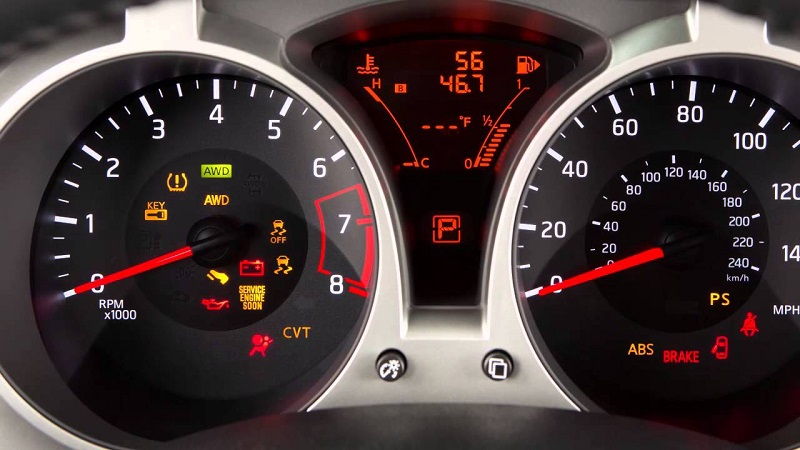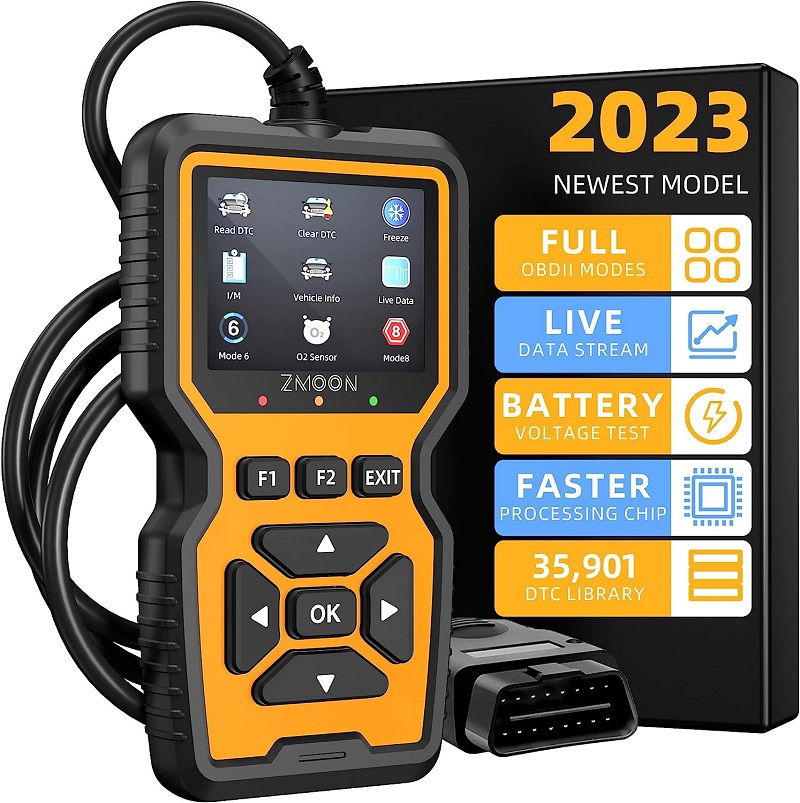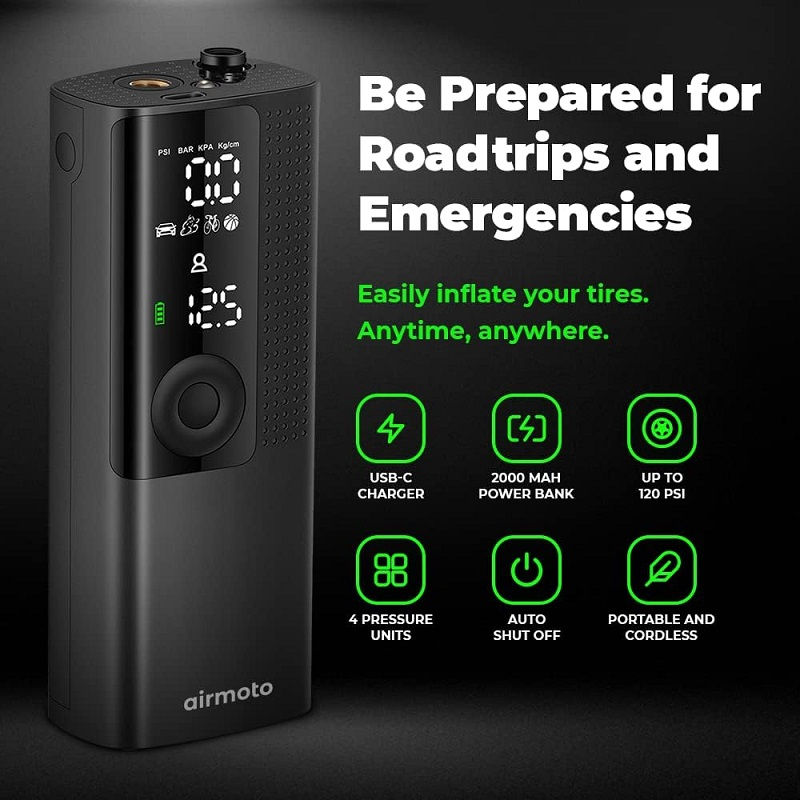This post contains affiliate links. This means I will make a commission at no extra cost to you should you click through and make a purchase [ “As an Amazon Associate, I earn from qualifying purchases.” ]. Read the full disclosure here.
Nissan Juke Dashboard Lights GuideMechanic.Com When it comes to your Nissan Juke, the dashboard lights play a crucial role in keeping you informed about the health and status of your vehicle.
Whether it’s a warning light indicating a potential issue or a simple notification light, understanding what each light means can save you from potential problems down the road.
In this comprehensive guide, we will delve into the various dashboard lights in your Nissan Juke, providing you with a detailed understanding of each one.
The Importance of Dashboard Lights

Dashboard lights are not just colorful additions to your Nissan Juke’s interior; they serve as an essential communication system between your vehicle and you as the driver.
These lights act as your vehicle’s way of letting you know when something isn’t quite right or when a system requires your attention.
See Also: Malfunction Indicator Light Nissan
By paying attention to these dashboard lights, you can prevent potential issues from escalating and ensure your safety on the road.
Why You Should Pay Attention to Dashboard Lights
Ignoring dashboard lights can lead to serious consequences. When a light illuminates, it means there’s a potential problem that needs to be addressed.
It could be something as minor as a loose gas cap or as significant as a malfunctioning engine. The earlier you address the issue, the higher the chances of preventing further damage and costly repairs.
The Importance of Prompt Action
When a dashboard light comes on, it’s crucial to take immediate action. Ignoring or delaying addressing the issue can lead to severe consequences, including damage to vital vehicle components and even compromising your safety on the road.
By promptly responding to the illuminated lights, you can nip potential problems in the bud and ensure your Nissan Juke continues to perform optimally.
Common Dashboard Lights Explained

Your Nissan Juke’s dashboard is equipped with a variety of warning lights that can illuminate under different circumstances.
Understanding the meaning behind these lights is essential for maintaining your vehicle’s performance. Let’s take a closer look at some of the most common dashboard lights you may encounter:
The Check Engine Light
The check engine light is one of the most common and potentially alarming lights that can illuminate on your Nissan Juke’s dashboard. It often indicates an issue with the engine or its associated systems.
When this light comes on, it’s essential to have your vehicle checked by a professional technician to diagnose and resolve the underlying issue. Ignoring the check engine light can lead to further damage and decreased fuel efficiency.
The Battery Warning Light
When your Nissan Juke’s battery warning light illuminates, it typically signifies a problem with the charging system. This could be due to a faulty battery, alternator, or other electrical component.
It’s crucial to have your vehicle inspected as soon as possible to prevent unexpected breakdowns and ensure your battery remains charged.
The Oil Pressure Warning Light
The oil pressure warning light indicates a potential problem with your Nissan Juke’s oil pressure system. Low oil pressure can lead to engine damage and should be addressed immediately.
See Also: Service Engine Soon Nissan
Check the oil level and consult your vehicle’s manual for the recommended actions to take. It’s important not to ignore this warning light, as it can result in severe engine issues.
The Tire Pressure Monitoring System Light

Your Nissan Juke is equipped with a tire pressure monitoring system (TPMS) that alerts you when the tire pressure is too low.
When the TPMS light illuminates, it’s crucial to check your tire pressures and adjust them accordingly. Proper tire pressure ensures optimal handling, fuel efficiency, and tire longevity.
The ABS Warning Light
The ABS (Anti-lock Braking System) warning light indicates a potential issue with your Nissan Juke’s braking system.
When this light comes on, it means the ABS system may not be functioning correctly, potentially compromising your vehicle’s braking performance.
It’s important to have your vehicle inspected by a professional to diagnose and resolve the issue promptly.
The Airbag Warning Light
The airbag warning light is a crucial safety feature that should never be ignored. When this light illuminates, it indicates a potential problem with your Nissan Juke’s airbag system.
Driving with a faulty airbag system can put you at risk in the event of an accident. Have your vehicle inspected to ensure the airbags are in proper working order.
The Fuel Level Warning Light
The fuel level warning light serves as a reminder to refuel your Nissan Juke when the fuel level is low. Ignoring this light can result in running out of fuel and potentially being stranded on the road. It’s important to refuel promptly to prevent any inconvenience or safety hazards.
The Temperature Warning Light
The temperature warning light alerts you when your Nissan Juke’s engine is overheating. Ignoring this light can cause severe engine damage.
If this light illuminates, it’s crucial to pull over safely and allow the engine to cool down. Check the coolant level and consult a professional if necessary.
The Brake System Warning Light
The brake system warning light indicates a problem with your Nissan Juke’s braking system. It could be due to low brake fluid, worn brake pads, or a malfunctioning brake system.
It’s crucial to have your vehicle inspected immediately to ensure your braking system is functioning correctly and to prevent potential accidents.
The Power Steering Warning Light
The power steering warning light alerts you when there’s an issue with your Nissan Juke’s power steering system. Driving without power steering assistance can be challenging and potentially dangerous.
See Also: Nissan Check Engine Light
Have your vehicle inspected promptly to diagnose and resolve the problem to ensure safe and comfortable driving.
Troubleshooting Dashboard Lights
Check out this DEWALT 20V MAX Tire Inflator, Compact and Portable, Automatic Shut Off, LED Light, Bare Tool Only (DCC020IB)

While understanding the meaning behind dashboard lights is crucial, it’s equally important to know what steps to take when a light illuminates. Here are some troubleshooting steps you can take when a specific dashboard light comes on:
Check the Vehicle Manual
Consult your Nissan Juke’s manual for specific information on the dashboard lights. The manual will provide detailed explanations of each light, including their meanings and recommended actions to take.
It’s always a good idea to familiarize yourself with the manual to ensure you’re well-informed in case of any dashboard light issues.
Address Immediate Safety Concerns
If a dashboard light indicates a safety concern, such as the temperature warning light or the brake system warning light, it’s crucial to take immediate action.
Safely pull over and assess the situation. If necessary, contact a professional technician or tow your vehicle to a reputable service center for further inspection and repairs.
Check Basic Vehicle Components
Before seeking professional help, you can perform some basic checks to rule out simple causes for dashboard light illuminations.
For example, checking your fuel cap to ensure it is properly tightened can resolve the fuel level warning light. Similarly, checking your tire pressures can address the TPMS light. These basic checks can save you time and money.
Monitor for Recurring Illuminations
If a specific dashboard light continues to illuminate after performing basic checks, it’s crucial to have your vehicle inspected by a professional technician.
Recurring illuminations may indicate an underlying issue that requires proper diagnosis and repair. Ignoring recurring dashboard light illuminations can lead to more significant problems down the line.
Seek Professional Assistance
When in doubt or if you’re unable to troubleshoot the dashboard light issue yourself, it’s always best to seek professional assistance.
Certified technicians have the expertise and diagnostic tools to accurately identify and resolve any dashboard light issues in your Nissan Juke. Don’t hesitate to schedule a visit to a reputable service center for a thorough inspection.
Maintenance Tips to Prevent Dashboard Light Issues
Prevention is key when it comes to dashboard light issues. By following these maintenance tips, you can minimize the chances of encountering dashboard light problems in your Nissan Juke:
Regular Vehicle Check-ups
Regularly scheduled maintenance check-ups are crucial for keeping your Nissan Juke in optimal condition.
These check-ups allow professional technicians to inspect your vehicle’s systems, identify potential issues, and address them before they escalate.
By following the recommended maintenance schedule outlined in your vehicle’s manual, you can prevent many dashboard light problems.
Monitor Fluid Levels
Fluids, such as engine oil, coolant, and brake fluid, play vital roles in your Nissan Juke’s performance. Regularly checking and maintaining proper fluid levels can prevent various dashboard light issues.
See Also: 2006 Nissan Pathfinder Catalytic Converter
Make it a habit to check your vehicle’s fluids regularly and top them up as needed. If you notice any significant fluid loss, it’s important to have your vehicle inspected for potential leaks or other issues.
Keep Your Battery in Good Condition
A healthy battery is essential for your Nissan Juke’s electrical system to function correctly. Regularly inspect your battery for signs of corrosion or damage, and clean the terminals as necessary.
If you encounter any issues with your battery, such as slow cranking or frequent jump-starts, have it tested and replaced if necessary to prevent potential battery-related dashboard light problems.
Properly Maintain Your Tires
Your Nissan Juke’s tires are crucial for safety and performance. Regularly check the tire pressure, tread depth, and overall condition of your tires.
Properly inflated and well-maintained tires can prevent the TPMS light from illuminating and ensure optimal handling, fuel efficiency, and tire longevity.
Additionally, rotating your tires regularly can help distribute wear evenly and prolong their lifespan, further reducing the chances of encountering tire-related dashboard light issues.
Address Warning Lights Promptly
Even if you follow preventive maintenance measures, there may still be instances when a dashboard light illuminates. In such cases, it’s important to address the issue promptly.
Ignoring or delaying action can lead to more significant problems and potential safety hazards. By promptly addressing warning lights, you can mitigate the risk of further damage and costly repairs.
Keep Your Vehicle Clean and Well-Maintained
Regularly cleaning and maintaining the exterior and interior of your Nissan Juke not only keeps it looking good but also helps prevent issues that may trigger dashboard lights.
For example, clean and clear headlights and taillights ensure proper visibility, reducing the chances of encountering lighting-related dashboard light problems.
Similarly, keeping your sensors and camera systems clean can prevent false alerts and ensure accurate functioning.
Frequently Asked Questions
Here are some commonly asked questions about Nissan Juke dashboard lights:
1. Why is my check engine light flashing?
A flashing check engine light indicates a severe issue that requires immediate attention. It typically signifies a misfire in the engine, which can cause damage to the catalytic converter.
It’s essential to have your vehicle inspected and diagnosed by a professional technician as soon as possible.
2. What should I do if my airbag warning light comes on?
If the airbag warning light illuminates, it means there may be a problem with your vehicle’s airbag system.
It’s crucial to have your vehicle inspected by a professional technician to ensure proper airbag functionality in the event of an accident.
3. Can I continue driving if my tire pressure monitoring system (TPMS) light is on?
While it’s possible to drive with the TPMS light on, it’s important to check your tire pressures as soon as possible.
Improperly inflated tires can affect your vehicle’s handling and fuel efficiency. Adjust the tire pressures accordingly and have your tires inspected for any potential issues.
4. Why does my battery warning light come on intermittently?
An intermittent battery warning light can indicate a problem with the charging system, such as a faulty alternator or a loose connection.
See Also: 2010 Nissan Murano Problems
It’s important to have your vehicle inspected by a professional technician to identify and address the underlying issue.
5. How often should I have my vehicle’s fluids checked?
Regularly checking your vehicle’s fluids is essential for maintaining optimal performance. It’s recommended to check the fluid levels, including engine oil, coolant, transmission fluid, and brake fluid, at least once a month. Consult your vehicle’s manual for specific guidelines and intervals.
Related video of Nissan Juke Dashboard Lights: A Comprehensive Guide to Understanding and Troubleshooting
- P0000 Through P0099: Understanding OBD-II Trouble Codes - February 11, 2025
- P0000 Through P0199: Understanding OBD-II Trouble Codes - February 10, 2025
- P0080 Exhaust Valve Control Solenoid Circuit High (Bank 1) - February 9, 2025
